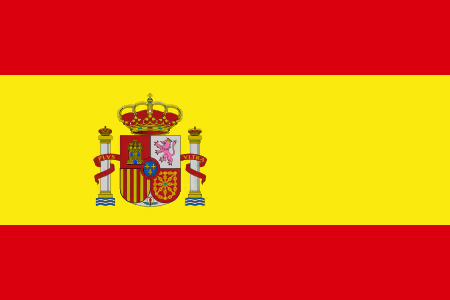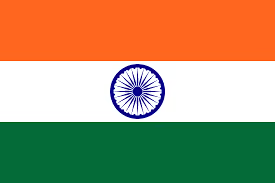National Geographic Traveler justly called it, "The Greatest River Trip in North America," and they'll get no quarrel from me. Yet, too many folks don't know how best to plan their longed-for river trip, and somehow it stubbornly remains on that life list. I've been gifted to have rafted the Grand Canyon 17 times over the past 28 years, and I'd like to share what you'll need to consider, to bring, and what to expect from traversing the rocky heart of North America in six-18 days, leveraging gravity and water on the great river of the American Southwest.

Guided rafting trips
Around 27,000 people take the river route through the heart of the Grand Canyon every year. Roughly 5,000 do so as privateers, paddling with a permit from our National Park Service, acquired through a weighted lottery. Since most people won't wait for possibly years to win a permit, may not have friends with paddle rafts and river gear, and most importantly, have no knowledge of the 130+ rapids to be run on a typical 7-day motor trip, (many of which are class 10), I advise choosing an NPS authorized commercial river company. Fifteen companies are tightly vetted by the NPS as concessioners, with special contracts to take passengers down the Colorado River in the Grand Canyon. You'll ride in 33-38' motor rigs with quiet 4-stroke engines, oar-powered rafts up to 18' long or, if you're lucky, a beautifully handcrafted dory.
Sorry to disappoint you, but only guides are allowed to drive or paddle on this river. All guides are carefully trained and many have years of experience in the Grand, learning to read water and memorizing myriad rapids, beaches and trails. Jon Stoner, an erudite guide on my last raft adventure with Arizona River Runners, has rafted the Grand Canyon an astonishing 330-plus times. That makes one feel safer, and his array of stories enlivened our days and nights in Riverworld.
There's much to learn and weigh before choosing your Grand Canyon rafting company, so let's dive in. Privateers launch every day of the year, while commercial trips run from early April to late October. I've run this stretch of the Colorado River from spring to fall and seasonality is VIP. First know that the water on which you ride comes from 200' below the current surface of Lake Powell, and is essentially snowmelt from the western slope of the Rockies. Ergo, the river is cold, about 50 degrees at Lees Ferry, where you'll put in on Day One.
Every GC river trip starts here at Mile 0, but where your trip ends is open to personal choice. The entire Grand Canyon is 277 miles long, featuring 250 rapids, averaging nearly one a mile. You'll want to run the river when the days are hot enough to thaw you out from dousing in big rapids. Even wearing rain suits, you'll get soaked repeatedly, which is exhilarating.

When to go
Early season trips in April into early May can be rather chilly if a late-season cold front slips in. Early summer here is quite dry and as May runs into June the afternoons are hot, 95 degrees plus. Early July is peak heat, but when the monsoon arrives, usually by mid-July, the skies sprout gorgeous clouds, and temps moderate as afternoon thunderstorms fill the sliver of the visible sky. Remember you'll be a mile deep in the Earth, unable to see the South or North Rim much of the trip. I've marveled at double rainbows over the river in mid-summer and ephemeral waterfalls too numerous to count.
The most exquisite stormlight arises during the monsoon, which disappears in September. After the White Mountains snowmelt ceases in early May the river drops its silt load and runs clear and lovely. That means that the Little Colorado River, a major tributary, runs like liquid turquoise, fed from Blue Spring. And far downstream, you'll hike up along Havasu Creek to swim in clear aqua pools, delighting in the much warmer waters. It's paradise.

Whenever it rains above the Grand Canyon, runoff carries silt into the river far below, and then it's revealed why the Spanish bestowed the Colorado its famous name. Roiling brown water dominates from July into September, but don't let it keep you from running the river, as the monsoon light show is worth a little muddy water splashing you in the face.
More than just rafting
One of the best things about doing the river is the access it gives you to scenic side canyons with waterfalls and pools, many of which are inaccessible from the canyon rim. We also respectfully and carefully visit several sites sacred to Native Americans. All river trips build in time for exploration, with guided hikes from ¼ mile up to 8+ miles in length. These are optional but are highly prized. Since you may never pass this way again, most people don their hiking shoes and hit the trail. Discovery is a potent brew, and as this is truly a wilderness expedition, you'll be challenged physically and thrilled spiritually by sites such as Confluence, the Nankoweap granary, Elves Chasm, and countless others. After 17 trips I'm still being shown amazing side canyons I've never seen before.
après-raft
All the river companies feed you very well, and I've yet to lose weight on any river trip. They have detailed gear checklists and guidance as to what to bring, including beer and wine for happy hours on the beach. Did I mention you'll be beach camping every night? All necessary camping gear is provided, and everyone pitches in to unload and reload the boats. A spirit of camaraderie develops quickly, and genuine friendships develop. Lacking internet we return to people-net. And under truly dark skies the stars feel close enough to touch.

This is a movable feast in every way, scenic, historic, cultural (the art of conversation flourishes in Riverworld), and all too soon you've run the rapids course and have to think about actually returning to Rimworld. The average motorized commercial river trip runs for 6-8 days. Some companies offer helicopter service from Whitmore Canyon, Mile 187, where you'll be flown up from the river in a short helicopter ride to the Bar Ten Ranch on the North Rim. There your gear and you are weighed, you can take the most welcome shower ever, and alas you fly back whence you started, either to Marble Canyon or Las Vegas.
You can have more Riverworld time if you plan a human oar-powered trip, as they can take 12-18 days from Lees Ferry downriver to Lake Mead. A bus then meets you at Diamond Creek (Mile 226) or Pearce Ferry (Mile 279), returning you to Las Vegas or Flagstaff. For those who desire the rowing trip experience, or just want to run the rapids in a dory like John Wesley Powell in 1869, but can't take 13-18 days off, you can split the trip in half at Mile 89 and hike in or out using the Bright Angel Trail from the South Rim. It takes a hardy soul, but I've done it several times and every day you live large in Riverworld is a day you'll long savor. This river will haunt your dreams and memories, as it has mine for years, and it calls me back, again and again.
Header image credit: An Pham.


Kerrick James
Kerrick James is a travel journalist specializing in active and cultural adventures worldwide, but Arizona is home. The 2020 SATW Travel Photographer of the Year, he’s rafted the Grand Canyon for magazine stories, to teach photo workshops, and purely for fun.












